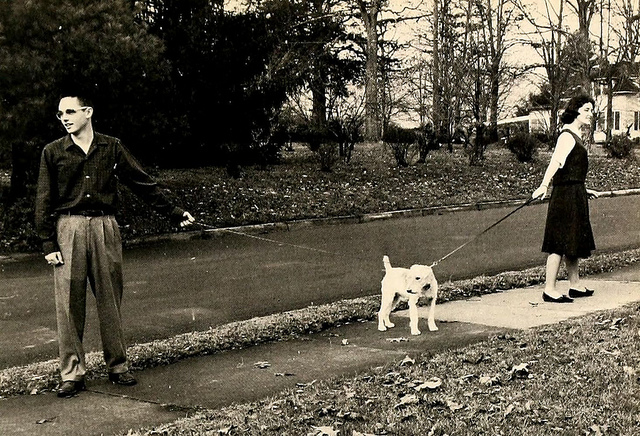Peter’s sprightly post leaves no room for doubt: he doesn’t buy the argument that he thinks I’m making about how we should respond to China’s rise. I’m glad to hear that because I don’t buy the argument he thinks I’m making either. Like him, I don’t believe that Australia must make a choice between America and China—or at least not the kind of once-and-for-all, all-or-nothing choice he has in mind. On the contrary, like Peter, I think the key aim of Australian policy should be to avoid having to make that kind of choice.
Where we differ, I think, is over what we should do to avoid being forced to make that ‘big choice’ between America and China. Peter would, I expect, agree that whether we can avoid making the big choice depends mainly on the trajectory of the US–China relationship. If they get on okay with one another, we can get on okay with both of them. But the worse they get on, the starker the choice we’ll face between them. And in the event of a conflict we would face a big choice indeed.
But Peter and I seem to differ on how seriously we need to take this risk of escalating strategic rivalry. Like many people, Peter seems broadly optimistic about the trend of US–China relations and I think that’s because he assumes that China’s challenge to US leadership in Asia isn’t something we need to take very seriously.
He has great faith in US strength and resolve and believes that China won’t be foolish enough to challenge it. All America has to do is stand firm, and all America’s friends and allies have to do is to stand firm beside it, and Beijing will back down. America would then remain the uncontested leading power in Asia indefinitely and Australia would face no pressure to make unwelcome choices.
I am rather less optimistic. I think the risk of escalating strategic rivalry between the US and China is high because China’s resolve is stronger that Peter believes it to be, and because China’s estimate of US resolve is lower than Peter believes it to be. China will therefore respond to US push back by pushing back harder itself. I think the events of the past few years support my gloomier assessment.
This is why Peter and I take different views of how best to minimise the chances that we’ll be forced to make a big choice. Peter thinks that the more firmly we all stand up to China’s challenge to the status quo, the sooner the Chinese will back off and things will go back to the way we want them to be. I think the more firmly we resist any accommodation of China’s ambitions, the faster strategic rivalry will escalate and the closer we will come to having to make the choice we all want to avoid.
Peter would respond, I expect, that any accommodation of Chinese ambitions would anyway be tantamount to making the big choice to side with China and dump America. But we differ over that, too. Peter’s view presupposes that there are only two possible futures for Asia: either maintaining US primacy or succumbing to Chinese hegemony. I think there are more options than that.
It’s perfectly possible that Asia could be stable and harmonious and that Australia could avoid any big ugly choices, under a new regional order in which neither America nor China exercises sole leadership. We could accommodate China to some extent without giving way on everything. Building and sustaining that kind of order would be difficult, of course. But it is worth trying, when the only alternatives are hoping that China backs down, or accepting escalating strategic rivalry. Hope isn’t a policy, and escalating rivalry is what we want to avoid.
That’s why I think we in Australia should do all we can to promote a new power-sharing order in Asia and avoid actions that make that order harder to achieve. So if we want to avoid being forced into a big choice between America and China, we must pay careful attention to some smaller but still important choices that confront us today.
Which brings us to Japan and last week’s visit. Among the smaller choices we face today is how to cooperate with Japan on strategic issues in Asia. I argue that we shouldn’t sign up to Japanese policies which escalate strategic rivalry but we should support those which help build a stable new order.
For reasons explained elsewhere, I think it’d be easier to negotiate an accommodation with China and create a stable new order in Asia if Japan becomes less strategically dependent on America. So I agree Japan needs to overhaul its strategic posture.
But it will be harder to negotiate an accommodation with China if Japan’s new strategic posture involves building a coalition of allies designed specifically to resist any such accommodation, which is what I think Mr Abe is trying to do. If Abe’s new line does not convince China to back down, and I don’t believe it will, then it is sure to contribute to escalating rivalry.
That’s why I think Mr Abbott was unwise to support Mr Abe’s policy as he did last week. Our support for Abe escalates regional rivalry and pushes us closer to the big choice which we all agree Australia must avoid.
Hugh White is professor of strategic studies at ANU and author of The China Choice. Image courtesy of Flickr user digitalnc.


